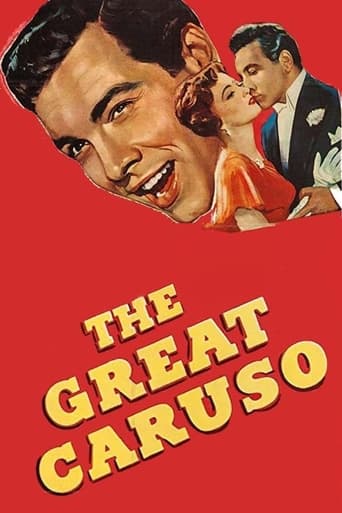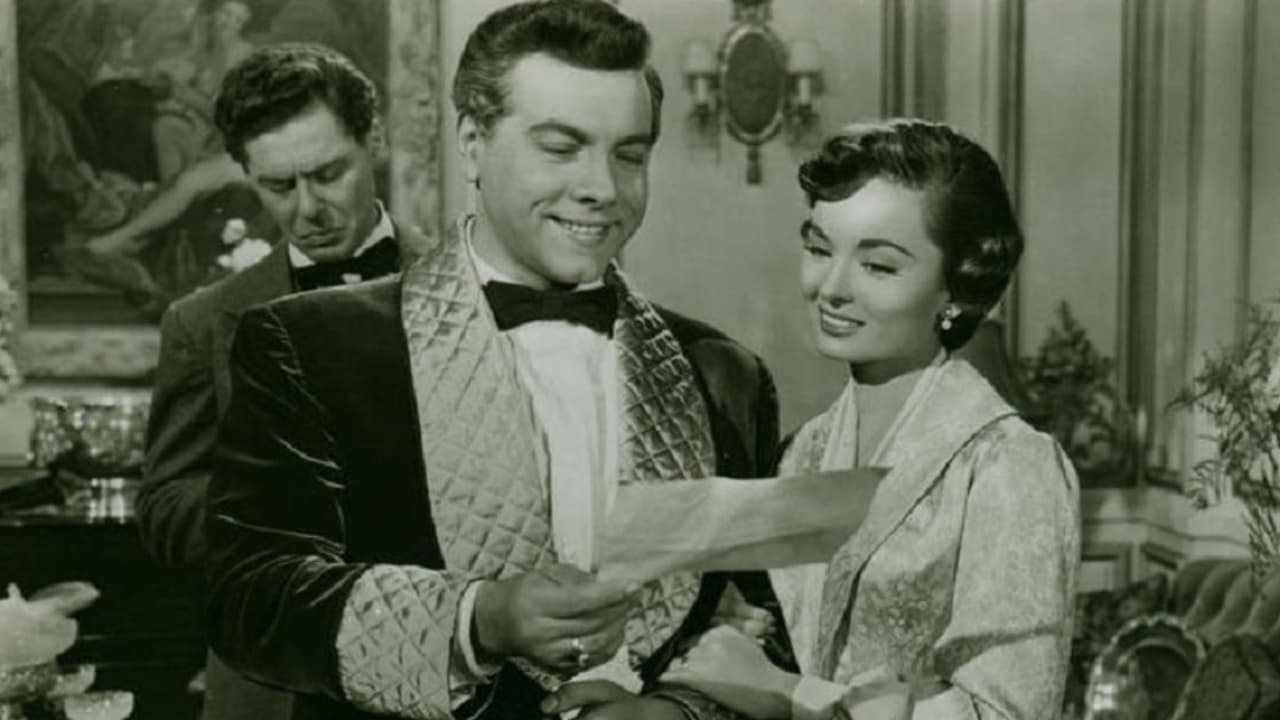blanche-2
Mario Lanza, of course, is "The Great Caruso" in this 1951 film also starring Ann Blyth, Dorothy Kirsten, Eduard Franz and Ludwig Donath. This is a highly fictionalized biography of the legendary, world-renowned tenor whose name is known even today.The film is opulently produced, and the music is glorious and beautifully sung by Lanza, Kirsten, Judmila Novotna, Blanche Thebom, and other opera stars who appeared in the film. If you're a purist, seeing people on stage smiling during the Sextet from "Lucia" will strike you as odd - even if Caruso's wife Dorothy just had a baby girl. Also it's highly unlikely that Caruso ever sang Edgardo in Lucia; the role lay too high for him.In taking dramatic license, the script leaves out some very dramatic parts of Caruso's life. What was so remarkable about him is that he actually created roles in operas that are today in the standard repertoire, yet this is never mentioned in the film. These roles include Maurizio in Adriana Lecouvreur and Dick Johnson in "Girl of the Golden West," There is a famous photo of him posing with a sheet wrapped around him like a toga. The reason for that photo? His only shirt was in the laundry. He was one of the pioneers of recorded music and had a long partnership with the Victor Talking-Machine Company (later RCA Victor). He was singing Jose in Carmen in San Francisco the night of the earthquake.Instead, the MGM story basically has him dying on stage during a performance of Martha, which never happened. He had a hemorrhage during "L'Elisir d'amore" at the Met and could not finish the performance; he only sang three more times at the Met, his last role as Eleazar in La Juive. What killed him? The same thing that killed Valentino - peritonitis. His first role at the Met was not Radames in Aida, as indicated in the film, but the Duke in Rigoletto. So when it says on the screen "suggested by Dorothy Caruso's biography of her husband," that's what it was - suggested. What is true is that Dorothy's father disowned her after her marriage, and left her $1 of his massive estate. They also did have a daughter Gloria together (who died at the age of 79 on 10/7/2007). However, Caruso had four other children by a mistress before he married Dorothy.Some people say that Lanza's voice is remarkably like Caruso's, but just listen to Caruso sing in the film "Match Point" -- Caruso's voice is remarkably unlike Lanza's. In fact, from his sound, had he wanted to, Caruso could have sung as a baritone. He is thought to have had some trouble with high notes, further evidence of baritone leanings; and the role he was preparing when he died was Othello, a dramatic tenor role, which Lanza definitely was not. Lanza's voice deserved not to be compared with another. He made a unique contribution to film history, popularizing operatic music. He sings the music in "The Great Caruso" with a robust energy; he is truly here at the peak of what would be a short career. His acting is natural and genuine. Ann Blyth is lovely as Dorothy and gets to sing a little herself.Really a film for opera lovers and Lanza fans, which are probably one and the same.
belcanto26
To begin with, this film, whatever its weaknesses, was largely responsible for many young people buying operatic recordings in the early 1950's. Lanza, of course, had a great, though uncultivated operatic voice, and his lack of lengthy formal training is obvious who anyone who knows what real operatic singing is supposed to sound like. Yes, he certainly had the range, power, and volume to sing every opera represented in this film, but his singing is far from polished or "finished". But no matter. He hit with a tremendous impact, and MGM made the most of it. The film itself really does not at all stick to the facts about Enrico Caruso. Caruso, certainly the greatest tenor of his time, died in Naples in 1920 after a somewhat lingering illness. The film opts for a more Hollywood-type ending. Lanza, moreover, was only a minimally competent actor, and, needless to say, his greatest moments are when he's singing Puccini, Donizetti, etc. Ann Blyth makes a positive account of herself as his wife Dorothy, and the celebrated Metropolitan Opera soprano Dorothy Kirsten actually comes off convincingly as a celebrated soprano who sang with Caruso (Lanza) in most of his Met performances. The operatic scenes are reasonably well done (by Hollywood standards), but as a biographical document of Caruso ----- it's neither accurate nor minimally plausible. I am sure that this film was lauded with great acclaim upon the time of it's release, but today, is just ends up being a nice two hours of entertainment ----- though it stands as a good testimony to the potential that Lanza had as a great tenor ------ a potential that was never realized. This was a great voice that could have been an operatic talent of the century had Hollywood not intervened and ruined it.
reve-2
This is a most handsome film. The color photography is beautiful as it shows the lavishness of the Metropolitan Opera House in brilliant color. Other indoor scenes at various mansions, etc are equally brilliant. As for the music, what more can be said other than that Lanza's voice was at its' peak as he sang so many of the worlds' best known and beloved arias. The marvelous Dorothy Kirsten is also a joy as her soprano voice blends with that of Lanza in delightful harmony. Of course, Hollywood took their customary liberties with the life story of Caruso. There is precious little in the story line that relates to actual events. For example, the facts relating to his death are totally fabricated and bear no relationship to the truth. There are some very good web sites that tell the true story of Caruso and contain several pictures of him. These web sites can be located by using any good search engine. There are also several books available concerning his life history. But, the fictional story line does nothing to mar this beautiful film. The voices of Lanza, Kirsten, and the chorus members are the real stars of this movie. Enjoy, I know that I sure did.
BobLib
Let me just say this, and then feel free to comment: I truly don't think that the late, great Mario Lanza ever had a better cinematic vehicle for his talents than "The Great Caruso." His larger than life personality and magnificent voice were never better served than here.Like Caruso before him, and long before the Three Tenors and Andrea Bocelli, Lanza became THE tenor superstar of his generation. If there is anyone who wants to know why, just listen to him sing some of the magnificent arias in this film. "Cielo e Mar," "E Lucevan le stelle," and especially his matchless "Vesti la Giubba," are evidence enough that Lanza could, indeed, have become bigger than Caruso, had not his excesses caught up with him at such a young age.I have just a couple of negative comments to insert here. First, the plot, while it makes for a good story, actually has very little to do with Caruso's life (Read Enrico Caruso Jr.'s "Caruso: My Father and My Family" for a good, readable biography. He even compliments Lanza and his performance!). For one thing, Caruso didn't die on stage, but several months after that last performance at the Metropolitan. Second, the "Italian" mannerisms in this movie are straight out of the Henry Armetta/"Life with Luigi" school, stereotyped to the hilt.But, given the overall scheme of things, these are relatively minor complaints. As to the rest, I say that, for those of you who've never heard Lanza and wonder why he was so great, this film will give you ample proof. For those of you who were there when Lanza was in his prime, here's a chance to live it all over again. A great film, and a matchless tribute to TWO of the legendary voices of our time.


 AD
AD


